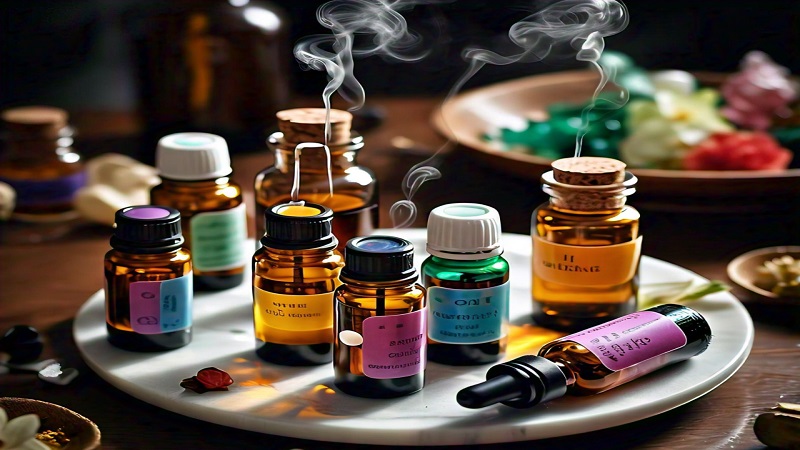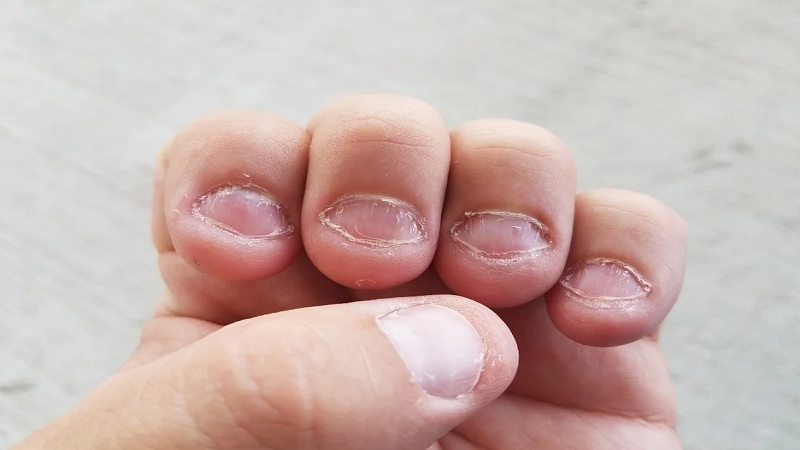Essential oils are a fascinating topic, often celebrated for their therapeutic benefits. But a common question arises: do essential oils evaporate? Understanding the evaporation process is crucial for anyone looking to maximize the benefits of these potent plant extracts.
In this guide, we’ll dive deep into the evaporation of essential oils, exploring factors that affect this process, how to effectively evaporate oils, and the potential risks involved. We’ll also compare evaporation in essential oils to other substances like water and discuss whether water will evaporate out of oil.
Key Takeaways
- Essential oils are volatile and can evaporate when exposed to air, heat, and light.
- Different factors, such as temperature, air circulation, and the oil’s molecular structure, influence the rate at which oils evaporate.
- Proper storage and usage methods can help minimize evaporation, preserving the potency and effectiveness of your oils.
Understanding Essential Oils: Composition and Extraction
Essential oils are complex compounds extracted from plants, capturing the essence of their aroma and flavor. These oils are obtained through various methods, including distillation, expression, and solvent extraction.
| Extraction Method | Description | Examples |
|---|---|---|
| Distillation | Uses steam or water to separate oils from plant materials. Ideal for delicate flowers. | Lavender, Rose |
| Expression | Mechanically presses plant material, commonly used for citrus oils. | Lemon, Orange |
| Solvent Extraction | Utilizes solvents to extract oils, requiring purification. | Jasmine, Vanilla |
Each essential oil carries a unique blend of chemical compounds, giving it specific therapeutic properties. For instance, lavender oil is prized for its calming effects, while peppermint oil is invigorating and uplifting.
The Science Behind Evaporation: Why Do Essential Oils Evaporate?
Do oils evaporate? The answer lies in their volatile nature. Essential oils are composed of small, light molecules that easily transition from a liquid to a gaseous state when exposed to air. This evaporation is influenced by several factors:
- Temperature: Higher temperatures accelerate evaporation, releasing aromatic compounds more quickly.
- Air Circulation: Increased airflow facilitates the dispersion of essential oils into the air, speeding up evaporation.
- Molecular Weight: Lighter molecules evaporate faster than heavier ones, affecting the overall evaporation rate.
Factors Affecting the Evaporation of Essential Oils
Several variables can affect how quickly essential oils evaporate. Understanding these can help you make informed decisions about storage and usage:
- Storage Conditions: Keep oils in dark, cool places in tightly sealed bottles to slow down evaporation.
- Exposure to Air: Oils left uncapped will evaporate more quickly. Always seal the bottle immediately after use.
- Humidity Levels: High humidity can either slow down or speed up evaporation, depending on the oil’s composition.
- Surface Area: The more surface area exposed to air, the faster the oil will evaporate.
Evaporation vs. Dissolution: Do Essential Oils Dissolve in Water?
A common question that arises is, does essential oil evaporate or dissolve in water? While essential oils do evaporate, they do not dissolve in water due to their hydrophobic nature. Instead, they float on the water’s surface, gradually evaporating over time. This leads to another query: will water evaporate out of oil? In most cases, yes, water will evaporate out of oil if left uncovered, but the process is slower compared to essential oil evaporation.

Methods of Using Essential Oils: Maximizing Benefits Through Evaporation
Understanding how to effectively evaporate essential oils can enhance their benefits. Here are some common methods:
- Diffusers: These devices disperse essential oils into the air, allowing for consistent and controlled evaporation. Using a diffuser is one of the most efficient ways to enjoy the therapeutic effects of essential oils.
- Warm Compress: Applying a warm compress with essential oils allows for slow evaporation, providing prolonged exposure to the oil’s benefits.
- Hot Water Evaporation: Adding a few drops of essential oil to a bowl of hot water releases aromatic molecules into the air, creating a soothing ambiance.
Common Methods of Evaporating Essential Oils
| Method | How It Works | Benefits |
|---|---|---|
| Diffuser | Disperses oils as fine mist into the air. | Consistent evaporation, air purification, mood enhancement. |
| Warm Compress | Oils evaporate slowly from a warm cloth. | Prolonged therapeutic effects, skin absorption. |
| Hot Water | Steam releases oils into the air. | Quick evaporation, room fragrance. |
Potential Risks of Evaporating Essential Oils
While evaporating essential oils offers numerous benefits, it’s important to be aware of potential risks:
- Skin Irritation: Improper use can lead to skin sensitivity, especially in humid environments where oils may evaporate more rapidly.
- Respiratory Issues: Prolonged exposure to essential oil vapors, particularly in poorly ventilated areas, can cause respiratory discomfort.
- Fire Hazards: Certain essential oils are flammable. Always store them away from heat sources and use them carefully in diffusers.
Managing Essential Oil Evaporation for Optimal Use
In conclusion, do essential oils evaporate? Yes, they do, and understanding the factors that influence evaporation can help you maximize their benefits. By storing essential oils properly and using appropriate evaporation methods, you can enjoy the full therapeutic potential of these natural compounds. Whether you’re using a diffuser, a warm compress, or hot water, remember to consider the risks and take necessary precautions to ensure safe and effective use.
FAQs
Do essential oils evaporate quickly?
Yes, essential oils evaporate quickly due to their volatile nature.
Can I prevent essential oil evaporation?
Proper storage in sealed, dark bottles slows evaporation.
Does essential oil evaporate at room temperature?
Yes, essential oils can evaporate at room temperature over time.
Do oils evaporate in diffusers?
Yes, diffusers promote the controlled evaporation of oils.
Will water evaporate out of oil mixtures?
Yes, water can evaporate out of oil, but the process is slow.
How do I minimize oil evaporation?
Store oils in cool, dark places with tight seals to minimize evaporation.
Does oil evaporate faster than water?
No, essential oils generally evaporate slower than water.
Can essential oils evaporate completely?
Yes, over time, essential oils can fully evaporate if exposed to air.
Do all essential oils evaporate at the same rate?
No, different oils have varying evaporation rates based on their molecular structure.
Is evaporation necessary for essential oil benefits?
Yes, evaporation is key to releasing aromatic compounds into the air.













